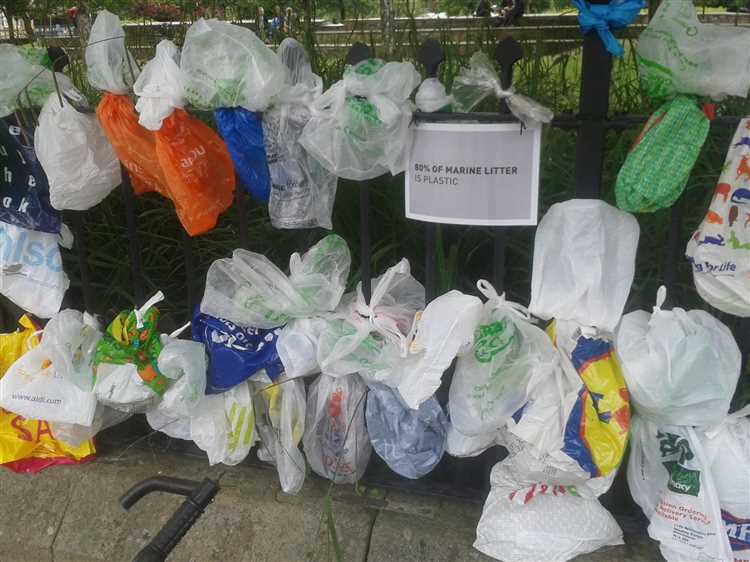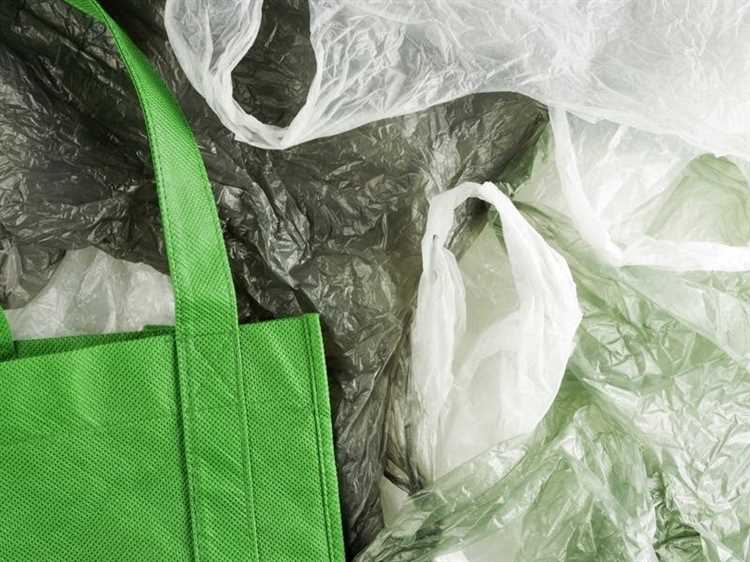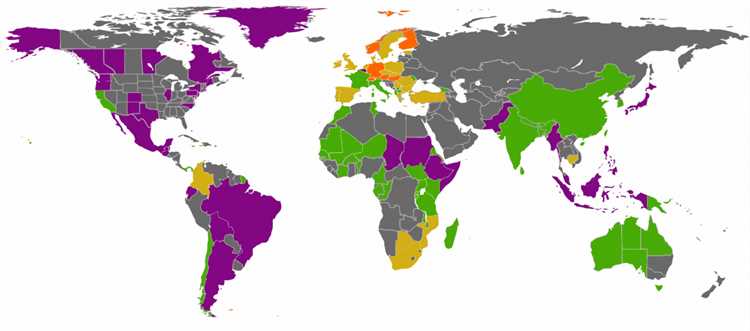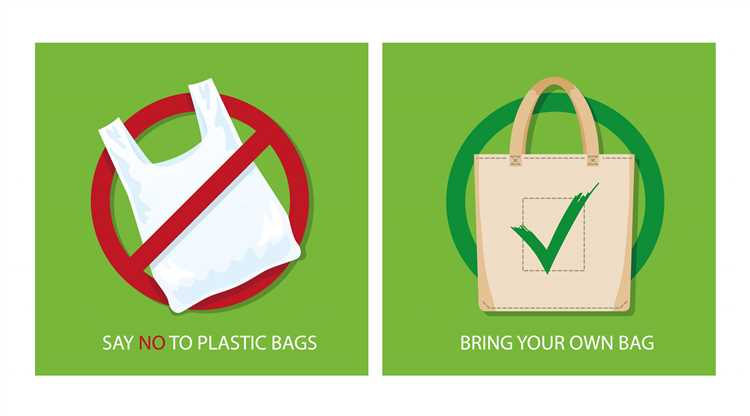
In an effort to reduce plastic waste and protect the environment, the town of Greenfield in Massachusetts has recently implemented a ban on single-use plastic bags. This forward-thinking decision was made in response to the growing concern over the detrimental effects of plastic pollution on wildlife and ecosystems.
The ban, which went into effect on January 1st, prohibits the use of plastic bags at all retail establishments, including grocery stores, pharmacies, and convenience stores. Instead, shoppers are encouraged to bring their own reusable bags or purchase paper bags for a small fee.
This pioneering move has been met with widespread support from both residents and environmentalists alike. By eliminating single-use plastic bags, Greenfield is taking a significant step towards reducing its carbon footprint and setting an example for other towns and cities to follow.
The implementation of this ban highlights the town’s commitment to sustainability and its dedication to preserving the natural beauty and resources of the area. It serves as a reminder that small changes in everyday life can have a profound impact on the health of our planet and the well-being of future generations.
- The First Town to Ban Plastic Bags
- Origin of the Initiative
- Enforcing the Ban
- Success and Impact
- History of Plastic Bags
- Environmental Impact of Plastic Bags
- Initiatives to Reduce Plastic Waste
- The Role of the Town in Plastic Bag Ban
- The Need for a Plastic Bag Ban
- Implementation and Enforcement
- Positive Impacts
- Impact of the Plastic Bag Ban
- 1. Reduced Plastic Waste
- 2. Cleaner Streets and Environments
- Question-Answer:
- Which town banned the plastic bag?
- Why did San Francisco ban plastic bags?
- When did San Francisco ban plastic bags?
- Are there any alternatives to plastic bags in San Francisco?
- Has the ban on plastic bags in San Francisco been successful?
- Which town banned the plastic bag?
- Why did Austin, Texas ban plastic bags?
The First Town to Ban Plastic Bags
Plastic bags have been a major cause of environmental pollution for many years. They take hundreds of years to decompose and contribute to littering and harm to wildlife. However, one town took a decisive step towards addressing this issue and became the first to ban plastic bags.
Origin of the Initiative
The town of Greenfield, located in Massachusetts, was the pioneering town that saw the need for a change. Concerned citizens, local environmental groups, and forward-thinking town officials came together to push for a ban on plastic bags. They recognized that the negative impact of plastic bags on their town and the environment could no longer be ignored.
Enforcing the Ban
Greenfield implemented the ban in 2007, making it the first town in the United States to take such a bold step. The ban prohibited the use of single-use plastic bags in all retail establishments within the town’s limits. This meant that residents and businesses had to find alternative ways to carry their groceries and products.
To help with the transition, the town provided reusable cloth bags to residents for free and encouraged the use of paper bags, which are biodegradable and easier to recycle. The town also offered assistance to local businesses in finding sustainable alternatives to plastic bags.
Success and Impact

The ban on plastic bags in Greenfield has been widely successful and has had a positive impact on the town’s environment. With the elimination of plastic bags, litter has significantly decreased, and wildlife has been better protected. The ban has also raised awareness among residents and businesses about the importance of reducing plastic waste and adopting more sustainable practices.
Inspired by the success of Greenfield, many other towns and cities across the United States have followed suit and implemented their own bans on plastic bags. This ripple effect has contributed to a larger movement towards reducing plastic pollution and promoting environmental responsibility.
The first ban of plastic bags in Greenfield served as a catalyst for change and set an example for other communities to follow. It showed that a small town could make a big difference and inspired others to take action in protecting the environment.
History of Plastic Bags

Plastic bags have a relatively short history compared to other types of bags used throughout human civilization. The first plastic bags were introduced in the 1950s and gained popularity due to their convenience and affordability.
Initially, plastic bags were made of polyethylene, a type of plastic that is lightweight, durable, and cost-effective to produce. They quickly became a staple in grocery stores and retail establishments around the world, providing an easy way for customers to carry their purchases.
However, as plastic bags became more prevalent, concerns began to arise about their environmental impact. Plastic bags are not biodegradable and can take hundreds of years to decompose. This leads to a significant build-up of plastic waste in landfills and contributes to pollution in oceans and other natural habitats.
Many governments and environmental organizations have recognized the need to reduce plastic bag usage and have implemented various measures to address the issue. One of the most notable examples is the town of Totnes in England, which became the first town in the UK to ban plastic bags in 2007.
Since then, many other towns, cities, and countries have followed suit and implemented similar bans or introduced charges for single-use plastic bags. These measures are aimed at reducing plastic waste and promoting the use of more sustainable alternatives like reusable bags made of fabric or other eco-friendly materials.
The battle against plastic bags is ongoing, with efforts to further reduce their usage and encourage environmentally-friendly alternatives. By understanding the history of plastic bags and their environmental impact, we can all contribute to making a positive difference in the world’s plastic pollution problem.
Environmental Impact of Plastic Bags
Plastic bags have become a ubiquitous part of our modern lives, but their environmental impact is cause for concern. These bags are made from non-renewable resources, such as petroleum, and their production and disposal contribute to pollution and climate change.
The main environmental problem with plastic bags is their persistence in the environment. Because they are not biodegradable, they can persist for hundreds of years, taking up space in landfills or littering our natural landscapes. This not only creates an eyesore, but also poses a threat to wildlife.
Marine life is particularly impacted by plastic bags. When they end up in rivers and oceans, they can be mistaken for food by marine animals. The bags can then clog their digestive systems, leading to injury or even death. Additionally, plastic bags can entangle animals, causing injuries and preventing them from swimming or flying properly.
Plastic bags also contribute to greenhouse gas emissions. The production of plastic bags releases carbon dioxide and other greenhouse gases into the atmosphere. Additionally, the process of producing the raw materials for plastic bags requires intensive energy use, further contributing to climate change.
Efforts to reduce the use of plastic bags have been growing. Many countries and cities have implemented bans or fees on single-use plastic bags to encourage consumers to switch to reusable alternatives. These measures aim to reduce the demand for plastic bags and ultimately lower their environmental impact.
It is important for individuals to consider the environmental impact of plastic bags and make conscious choices to reduce their use. Using reusable bags, such as fabric or canvas totes, can help reduce our dependence on plastic bags and minimize their negative effects on the environment.
Initiatives to Reduce Plastic Waste
Plastic waste has become a major environmental concern in recent years due to its negative impact on ecosystems and human health. To address this issue, various towns and cities around the world have implemented initiatives to reduce plastic waste. One notable example is the town of Modbury in the United Kingdom, which became the first town in Europe to ban plastic bags in 2007.
In Modbury, the ban on plastic bags was implemented as part of a community-led campaign called “Plastic Free Modbury”. The campaign aimed to raise awareness about the detrimental effects of plastic bags and encourage residents to switch to more sustainable alternatives, such as reusable bags. The ban received widespread support from the local community and businesses, and it successfully reduced the use of plastic bags in the town.
Following the success of Modbury’s plastic bag ban, many other towns and cities have followed suit and implemented similar initiatives. In the United States, for example, the city of San Francisco introduced a ban on plastic bags in 2007, becoming the first city in the country to do so. Since then, numerous other cities and states have implemented their own bans or restrictions on plastic bags.
In addition to plastic bag bans, other initiatives to reduce plastic waste include the introduction of plastic bottle deposit schemes, the promotion of reusable water bottles, and the implementation of recycling programs. These efforts aim to reduce the amount of single-use plastics in circulation and promote more sustainable consumption habits.
| Town/City | Date of Plastic Bag Ban |
|---|---|
| Modbury, United Kingdom | 2007 |
| San Francisco, United States | 2007 |
Overall, these initiatives are crucial in tackling the plastic waste problem and promoting a more sustainable and environmentally-friendly future. By reducing plastic waste, towns and cities can protect their local ecosystems, improve public health, and contribute to global efforts to combat climate change.
The Role of the Town in Plastic Bag Ban

Plastic bags have long been a major contributor to environmental pollution and harm to wildlife. In an effort to address this issue, many towns and cities around the world have taken measures to ban or restrict the use of plastic bags. One town that has successfully implemented a plastic bag ban is Portland, Oregon.
The Need for a Plastic Bag Ban
Portland recognized the detrimental impact of plastic bags on the environment, including their contribution to marine pollution and the creation of greenhouse gases during their production. In an effort to reduce waste and protect the local ecosystem, the town decided to take action by banning single-use plastic bags.
Implementation and Enforcement
The town of Portland worked closely with local businesses to implement and enforce the plastic bag ban. They provided information and resources to help businesses transition to alternative packaging options, such as reusable bags or paper bags. Additionally, the town conducted educational campaigns to raise awareness among residents about the importance of reducing plastic waste and the benefits of using reusable bags.
To enforce the ban, the town established penalties for non-compliant businesses. Inspections were conducted to ensure businesses were following the regulations, and fines were issued to those found in violation. This created a strong incentive for businesses to comply with the ban and actively encourage customers to bring their own bags.
Positive Impacts
The plastic bag ban in Portland has had several positive impacts. First and foremost, it has significantly reduced the amount of plastic waste generated by the town. This has led to a cleaner environment and less harm to wildlife. The ban has also encouraged the use of reusable bags and other eco-friendly alternatives, which has helped to change consumer behavior and promote sustainability.
Furthermore, the plastic bag ban has positioned Portland as a leader in environmental conservation. The town’s commitment to reducing plastic waste has garnered attention and praise from other communities, inspiring them to consider similar bans. Overall, the town’s efforts have played a crucial role in raising awareness about the environmental impact of plastic bags and moving towards a more sustainable future.
Impact of the Plastic Bag Ban
Since the town of [town name] banned the use of plastic bags, there have been several noticeable impacts on the community and the environment.
1. Reduced Plastic Waste
One of the main benefits of banning plastic bags is the significant reduction in plastic waste. Without access to plastic bags, residents are encouraged to bring their own reusable bags when shopping. This has led to a decrease in the amount of plastic waste generated within the town.
2. Cleaner Streets and Environments

Prior to the ban, plastic bags were often littered in the streets and natural areas, causing both an eyesore and harm to wildlife. Since the ban, the streets have become cleaner, and the environment is better protected. The absence of plastic bags has also reduced the risk of animals accidentally ingesting or getting entangled in them.
Overall, the plastic bag ban in [town name] has had a positive impact on reducing plastic waste and improving the cleanliness of the town. It has also raised awareness about the importance of sustainable shopping practices and encouraged the use of reusable bags.
Question-Answer:
Which town banned the plastic bag?
The town that banned the plastic bag is San Francisco.
Why did San Francisco ban plastic bags?
San Francisco banned plastic bags to reduce pollution and protect the environment.
When did San Francisco ban plastic bags?
San Francisco banned plastic bags in 2007.
Are there any alternatives to plastic bags in San Francisco?
Yes, in San Francisco, people can use reusable bags or paper bags as alternatives to plastic bags.
Has the ban on plastic bags in San Francisco been successful?
Yes, the ban on plastic bags in San Francisco has been successful in reducing plastic waste and promoting the use of reusable bags.
Which town banned the plastic bag?
Austin, Texas banned single-use plastic bags in 2013.
Why did Austin, Texas ban plastic bags?
Austin, Texas banned plastic bags to reduce waste and protect the environment.